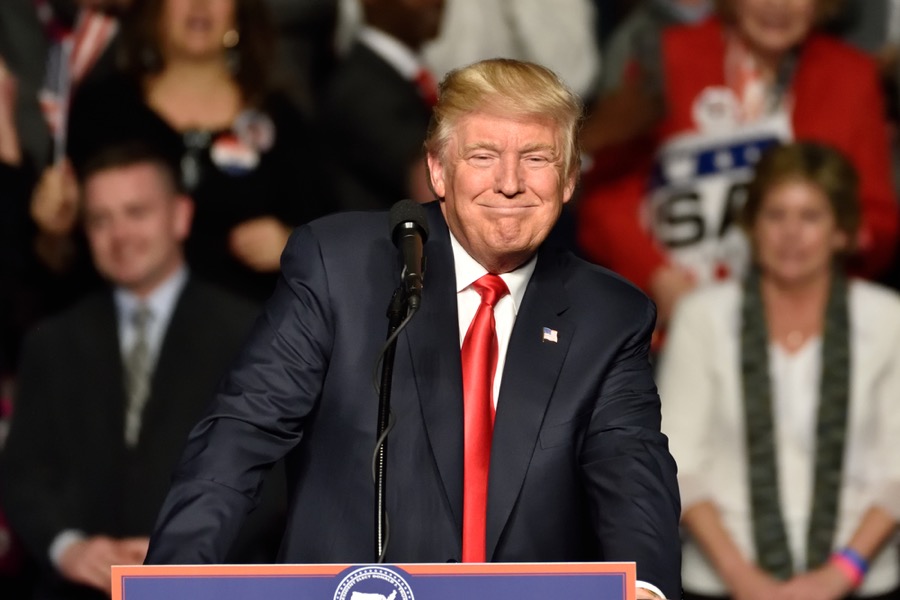
WASHINGTON/MEXICO CITY, March 5 (Reuters) – U.S. President Donald Trump increased pressure on Canada and Mexico over trade on Monday, saying the two could avoid being caught in his planned hefty tariffs on steel and aluminum if they ceded ground in talks on a new NAFTA trade deal.
Trump also said, after a weekend of tweets in which he threatened to hit German automakers with tariffs, that Mexico needed to do more to stem the flow illegal drugs to the United States, something not encompassed by the talks over the North American Free Trade Agreement.
Trump’s determination to push ahead with a 25 percent tariff on steel imports and a 10 percent duty on aluminum has prompted threats of retaliation from the European Union, Canada, China and Brazil among others. It has roiled world stockmarkets as investors worry about the prospect for an ever-escalating trade war that would derail global economic growth.
His plan, announced on Thursday, has also hit resistance from some senior figures in his own Republican Party.
House of Representatives Speaker Paul Ryan, a Republican whose state of Wisconsin would be hit by proposed European counter-tariffs on Harley Davidson motorcycles, urged the White House on Monday not to push ahead with the action.
Fellow Republican Kevin Brady, the top House legislator on trade, said American consumers should not be forced to pay more for goods.
Trump has been unmoved by lobbying from lawmakers, leading companies and industry groups since he first announced the measure. If anything, he has repeatedly upped the ante.
“We’re not backing down,” Trump said during a White House meeting with Israeli Prime Minister Benjamin Netanyahu. “I don’t think you’re going to have a trade war,” he added, without elaborating.
U.S. stocks reversed early losses to trade in positive territory after falls last week that were triggered in part by Trump’s tariff plans. Treasuries rallied as investors sought out safe-haven securities.
In Europe, German car giants Volkswagen AG and BMW also recovered from earlier losses. German car companies urged policymakers on Monday to avoid a trade war with the United States “at all costs.”
Trump was expected to finalize the planned tariffs later in the week, posing a tough challenge for U.S. Trade Representative Robert Lighthizer, Canada’s Foreign Minister Chrystia Freeland and Mexican Economy Minister Ildefonso Guajardo. They were meeting in Mexico City on Monday to wrap up the latest round of discussions on revamping the 1994 NAFTA deal.
“Mexico shouldn’t be included in steel & aluminum tariffs. It’s the wrong way to incentivize the creation of a new & modern NAFTA,” Guajardo said on Twitter.
Trump has touted the tariffs as a way to revive the U.S. steel and aluminum industries, in keeping with his promises both on the campaign trail and in the White House that he will seek deals that better favor American workers.
That has included the threat that Washington will withdraw from NAFTA if it is not satisfactorily renegotiated. He withdrew from a proposed Pacific trade pact on his first day in office in January last year.
In another comment on the NAFTA talks on Monday, Trump reprised two running criticisms of Canada and Mexico. Last year Trump came close to withdrawing from NAFTA after he visited American dairy farmers in Wisconsin who say they have been hit by Canadian rules that discriminate against U.S. milk exports.
“Also, Canada must treat our farmers much better. Highly restrictive. Mexico must do much more on stopping drugs from pouring into the U.S. They have not done what needs to be done. Millions of people addicted and dying,” Trump tweeted.
The Mexican and Canadian ministers were likely to press Trump’s trade envoy for more details on how their countries could be excluded from the blanket tariffs.
Canadian Finance Minister Bill Morneau said on Monday the country was negotiating on NAFTA with a partner that has “changed the terms of the discussion.”
In Washington, aides scrambled to meet Trump’s demand for the paperwork to be completed for a formal announcement this week. The exact timing was still unclear as the tariff documentation had to be drafted and go through a variety of reviews, a process that takes days, an administration official said.
Trump remained adamant about signing the tariffs, according to officials in and out of the White House. The president “sees this as a base issue for him,” one Trump outside adviser said.
There was always a chance that Trump ”could amend his initial announcement” to take account of the concerns expressed about it, said a source familiar with the internal debate at the White House.
(Reporting by Susan Heavey and Adriana Barrrera; Additional reporting by Steve Holland, Eric Walsh, Sharay Angulo, Lesley Wroughton, David Ljunggren, Sujata Rao, Ilona Wissenbach, Michael Nienaber, Fergal Smith; Writing by David Chance; Editing by Andrea Ricci and Frances Kerry)